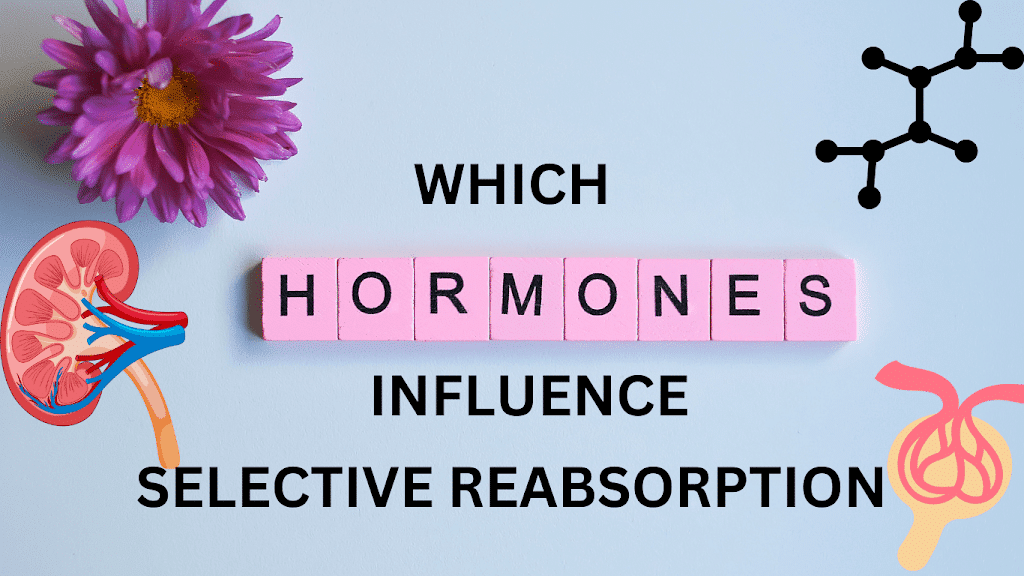Hormones that influence the selective reabsorption process:
Selective reabsorption primarily occurs in the kidney’s nephron, where blood filtration occurs through three major processes: glomerular filtration, tubular reabsorption, and tubular secretion. In selective absorption, various hormones play essential roles in regulating the reabsorption of specific substances.
The essential hormones that influence selective reabsorption include:
1. Antidiuretic Hormone (ADH) or Vasopressin:
· The body’s homeostasis is maintained through the osmoregulation of the body fluids; in the human body, this is performed by the osmoregulators, which are specific sensory messengers that keep a strict eye on the water concentration of body fluids.
· If these osmoreceptors detect a lower osmotic pressure of blood, then they will immediately stimulate the supraoptic and paraventricular nuclei of the hypothalamus, which are further stored and released by the posterior pituitary gland.
· ADH is chiefly responsible for water retention in the body through water reabsorption in the distal convoluted tubule (DCT) and collecting ducts of the nephron, making the urine more hypertonic.
· It increases the permeability of these segments to water by inserting aquaporin channels (phosphorylated in nature) into their cell membranes. Overall, ADH leads to increased water reabsorption and more concentrated urine, helping to retain more water in the body in case of dehydration.
2. Aldosterone:
· Produced by the adrenal glands, aldosterone influences sodium and water reabsorption in the intercalated cells of distal tubules and the collecting ducts of the nephron.
· Serum potassium concentration is the main stimulator for aldosterone secretion.
· In case of a drop in blood pressure, aldosterone is released from the adrenal gland to stimulate the reabsorption of sodium ions and, indirectly, water, which enhances blood volume and blood pressure while promoting the excretion of potassium ions. This hormone helps regulate electrolyte balance and blood pressure.
· Produced by the heart’s atria in response to high blood pressure or increased blood volume, ANP has the opposite effect of aldosterone.
· In the proximal tubule, ANP obstructs different Na+ transport systems, like the Na+/H+ exchanger, Na/Pi type IIa cotransporter, the Na+, K+-ATPase, and at the same time acts antagonistically to angiotensin-stimulated sodium reabsorption.
· Simultaneously in the ascending limb of the loop of Henle ANP, prohibits Cl- ions transport as well as Na+/K+/2Cl− cotransporter, which results in the decline of concentrated urine and enhances urine formation.
· Atrial Natriuretic Peptide (ANP) inhibits sodium and water reabsorption at the distal convoluted tubule and collecting ducts of the nephron, promoting their excretion in the urine. This hormone helps reduce blood volume and pressure.
4. Parathyroid Hormone (PTH):
· Produced by the parathyroid glands, PTH influences the reabsorption of calcium ions at distal convoluted tubules of the nephron. It acts on the distal convoluted tubule to enhance calcium reabsorption in blood while inhibiting phosphate reabsorption.
· PTH also stimulates the synthesis of active vitamin D in the kidney, further enhancing calcium absorption in the intestines.
Conclusion:
These hormones collectively regulate water reabsorption, electrolytes (sodium, potassium, calcium, phosphate), and other solutes in the nephron, ensuring the body’s proper fluid balance, electrolyte levels, and overall homeostasis.

-min.png)
